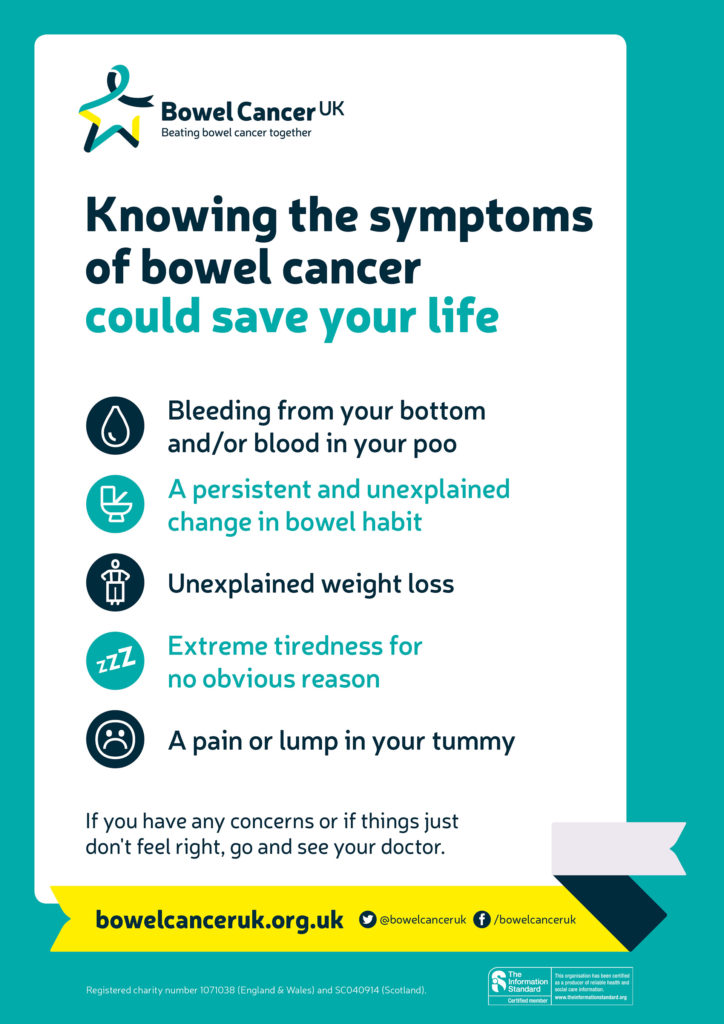Knowing The Symptoms Of Bowel Cancer Could Save Your Life

By Rose Stone, Head of Support and Information at Bowel Cancer UK
Every year in the UK over 42,000 people are diagnosed with bowel cancer, it’s the UK’s fourth most common cancer. It’s also the UK’s second biggest cancer killer, however it shouldn’t be because it is treatable and curable, especially if diagnosed early.
What are the symptoms of bowel cancer?
These are the most common symptoms of bowel cancer:
- Bleeding from your bottom and/or blood in your poo
- A persistent and unexplained change in bowel habit
- Unexplained weight loss
- Extreme tiredness for no obvious reason
- A pain or lump in your tummy
Most people with these symptoms don’t have bowel cancer. Other health problems can cause similar symptoms but if you have one or more of these, or if things just don’t feel right, go and see your GP.
Find out more about the symptoms on Bowel Cancer UK’s website.
Track your symptoms
GPs know how important it is to diagnose cancer quickly, but it can be really difficult to pinpoint the key symptoms of concern when patients first come to see them, especially when they look so similar to other, more common conditions.
That’s why Bowel Cancer UK launched a symptoms diary to help keep track of your symptoms before you visit your GP. This will give a good indication to your doctor whether you need further tests. You may not remember all your symptoms during the short appointment so having something written down can be useful. The diary is accredited by the Royal College of GPs.
Download your free Bowel Cancer UK symptoms diary here.
What else could it be?
Your symptoms could be caused by other common conditions that can be treated or controlled by your GP, such as:
- Constipation: not being able to poo regularly
- Diarrhoea: when your poo is looser or more frequent than is normal for you
- Piles (haemorrhoids): swellings containing enlarged blood vessels that are found inside or around the bottom
- Irritable bowel syndrome (IBS): usually a lifelong problem that affects the digestive system, and causes stomach cramps, bloating, diarrhoea and constipation
- Diverticular disease: small bulges or pockets that develop in the lining of the large intestine
- Crohn’s disease: a lifelong condition in which parts of the digestive system become inflamed
- Ulcerative colitis: a long-term condition where the colon and rectum become inflamed. Small ulcers can develop on the colon’s lining, and can bleed and produce pus
Find out more about bowel cancer on Bowel Cancer UK’s website . . .






